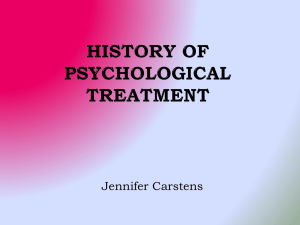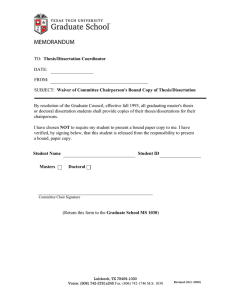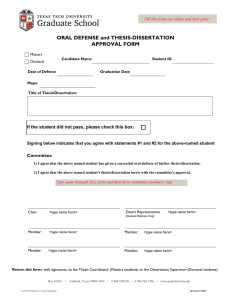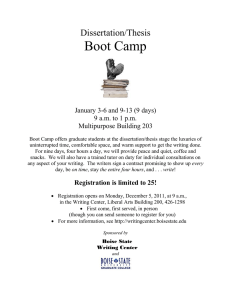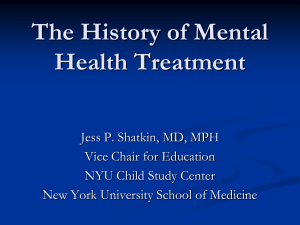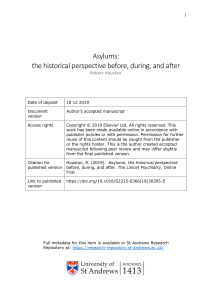ESRC 1+3
advertisement
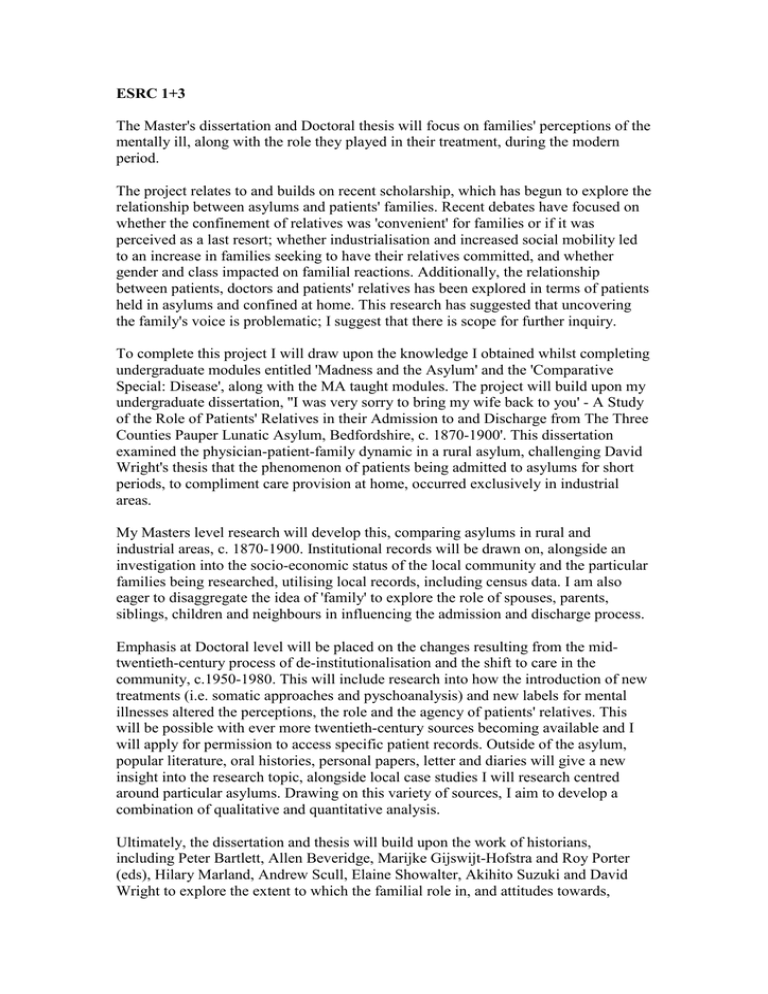
ESRC 1+3 The Master's dissertation and Doctoral thesis will focus on families' perceptions of the mentally ill, along with the role they played in their treatment, during the modern period. The project relates to and builds on recent scholarship, which has begun to explore the relationship between asylums and patients' families. Recent debates have focused on whether the confinement of relatives was 'convenient' for families or if it was perceived as a last resort; whether industrialisation and increased social mobility led to an increase in families seeking to have their relatives committed, and whether gender and class impacted on familial reactions. Additionally, the relationship between patients, doctors and patients' relatives has been explored in terms of patients held in asylums and confined at home. This research has suggested that uncovering the family's voice is problematic; I suggest that there is scope for further inquiry. To complete this project I will draw upon the knowledge I obtained whilst completing undergraduate modules entitled 'Madness and the Asylum' and the 'Comparative Special: Disease', along with the MA taught modules. The project will build upon my undergraduate dissertation, ''I was very sorry to bring my wife back to you' - A Study of the Role of Patients' Relatives in their Admission to and Discharge from The Three Counties Pauper Lunatic Asylum, Bedfordshire, c. 1870-1900'. This dissertation examined the physician-patient-family dynamic in a rural asylum, challenging David Wright's thesis that the phenomenon of patients being admitted to asylums for short periods, to compliment care provision at home, occurred exclusively in industrial areas. My Masters level research will develop this, comparing asylums in rural and industrial areas, c. 1870-1900. Institutional records will be drawn on, alongside an investigation into the socio-economic status of the local community and the particular families being researched, utilising local records, including census data. I am also eager to disaggregate the idea of 'family' to explore the role of spouses, parents, siblings, children and neighbours in influencing the admission and discharge process. Emphasis at Doctoral level will be placed on the changes resulting from the midtwentieth-century process of de-institutionalisation and the shift to care in the community, c.1950-1980. This will include research into how the introduction of new treatments (i.e. somatic approaches and pyschoanalysis) and new labels for mental illnesses altered the perceptions, the role and the agency of patients' relatives. This will be possible with ever more twentieth-century sources becoming available and I will apply for permission to access specific patient records. Outside of the asylum, popular literature, oral histories, personal papers, letter and diaries will give a new insight into the research topic, alongside local case studies I will research centred around particular asylums. Drawing on this variety of sources, I aim to develop a combination of qualitative and quantitative analysis. Ultimately, the dissertation and thesis will build upon the work of historians, including Peter Bartlett, Allen Beveridge, Marijke Gijswijt-Hofstra and Roy Porter (eds), Hilary Marland, Andrew Scull, Elaine Showalter, Akihito Suzuki and David Wright to explore the extent to which the familial role in, and attitudes towards, mental health care provision remained constant, regardless of its nature and location, throughout the nineteenth and twentieth centuries.
